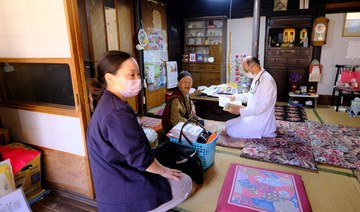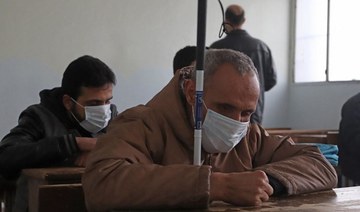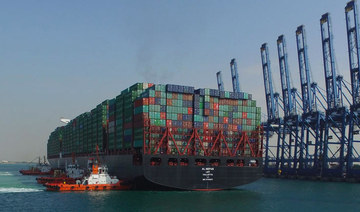Pregnant women infected with COVID-19 and their newborn children face higher risks of complications than was previously known, a study by British scientists showed on Friday.
An infection of the new coronavirus in such newborns is associated with a three-fold risk of severe medical complications, according to a study conducted by scientists at the University of Oxford.
While pregnant women are at higher risk of complications such as premature birth, high blood pressure with organ failure risk, need for intensive care and possible death.
“Women with COVID-19 during pregnancy were over 50% more likely to experience pregnancy complications compared to pregnant women unaffected by COVID-19,” said Aris Papageorghiou, co-lead of the trial and a professor of fetal medicine at Oxford University.
The study was conducted in more than 2,100 pregnant women across 18 countries, where each woman affected by COVID-19 was compared to two non-infected women giving birth at the same time in the same hospital.
Findings from the study, published in the medical journal JAMA Pediatrics, also showed a delivery by caesarean section may be associated with an increased risk of virus infection in newborns.
However, breastfeeding does not seem to heighten risks of babies contracting COVID-19 from their mothers, scientists said.
More risks to pregnant women, their newborns from COVID-19 than known before — study
https://arab.news/4nfbv
More risks to pregnant women, their newborns from COVID-19 than known before — study

- An infection of the new coronavirus in such newborns is associated with a three-fold risk of severe medical complications
- The study was conducted in more than 2,100 pregnant women across 18 countries
Australian leader tells activists to ‘turn the heat down’ after US Consulate vandalized over Gaza

Surveillance video showed a person wearing a dark hoodie using a small sledgehammer to smash nine holes in the reinforced glass windows of the building in North Sydney after 3 a.m., a police statement said.
Two inverted red triangles, seen by some as a symbol of Palestinian resistance but by others as supporting the militant group Hamas, were also painted on the front of the building.
Albanese urged people to have “respectful political debate and discourse.”
“People are traumatized by what is going on in the Middle East, particularly those with relatives in either Israel or in the Palestinian Occupied Territories,” Albanese told reporters.
“And I just say, again, reiterate my call to turn the heat down and measures such as painting the US consulate do nothing to advance the cause of those who have committed what is, of course, a crime to damage property,” Albanese added.
The consulate was closed on Monday because of a public holiday in New South Wales state but would reopen on Tuesday, a consulate statement said.
New South Wales Premier Chris Minns said an overwhelming majority of Australians did not approve of such vandalism.
“We can make our point in this country without resorting to violence or malicious behavior,” Minns said.
The consulate was sprayed with graffiti in April, including the words “Freee (sic) Gaza.” The US Consulate in Melbourne was vandalized by pro-Palestinian activists on May 31.
Saudi-run terminal starts operations at largest Bangladeshi port

- Under a deal signed last year, RSGT will operate Patenga Container Terminal for 22 years
- Chittagong Port is the busiest container port in the Bay of Bengal
DHAKA: Saudi developer Red Sea Gateway Terminal on Monday started operations at the Patenga Container Terminal in Chittagong Port, marking the first time a foreign company has run a Bangladeshi port.
The Chittagong Port site is the busiest container port in the Bay of Bengal. It handled about 3.2 million 20-feet equivalent units in the 2021 fiscal year and serves as the main gateway for Bangladesh’s ocean cargo.
The RSGT and Chittagong Port Authority signed a concession agreement in December for the Saudi company to manage and operate the new $240 million Patenga Container Terminal, which is situated in Bangladesh’s largest port, for the next 22 years.
RSGT commenced operations at the terminal on Monday, and CPA was optimistic about the future of its business.
Omar Faruk, secretary of the CPA, told Arab News: “With these new facilities of Patenga Bay Terminal, we are expecting a boost in the world ranking of Chittagong Port.
“The facilities will increase the additional container handling capacity of the site, up to 450,000 (20-feet equivalent container units) annually. It will reduce the waiting time for the ships significantly.”
Under the deal RSGT will equip, operate and maintain the Patenga terminal, which was completed last year. It handles between 5 and 7 percent of Chittagong’s entire operations, the rest of which are handled by the CPA.
Bangladesh’s Prime Minister Sheikh Hasina previously said that Patenga was a “lighthouse of hopes for the economic development of Bangladesh.”
Faruk said: “The new facilities will create some new employment opportunities for Bangladeshis also. Already, 260 new employees have been recruited by the RSGT, and most of them are Bangladeshis.
“It will definitely create a new dimension in our international trading arena.”
RSGT’s deal to operate the Patenga Bay Terminal is just the beginning of other potential projects, Saudi Ambassador to Bangladesh Essa Al-Duhailan told Arab News, adding that investors from the Kingdom have been eager to travel to the South Asian nation to explore various areas of cooperation and investment.
He said: “Bangladesh has political stability and security and good law enforcement, so it attracts many businessmen and many big companies.
“These kinds of projects enhance the relationship, especially in the business field, between Saudi Arabia and Bangladesh.”
India’s Modi faces new challenges as he starts rare third term as PM

- Modi’s council of ministers also took their oaths on Sunday evening
- Analysts expect the 73-year-old to reveal a new style of leadership
NEW DELHI: India’s Prime Minister Narendra Modi resumed duties as the country’s leader on Monday, in a rare third term analysts expect will be challenging under the new coalition government.
Modi was sworn in for a third consecutive term on Sunday evening, becoming only the second leader after founding PM Jawaharlal Nehru to achieve the feat. His swearing-in was followed by his council of ministers — a group that included 30 cabinet ministers.
While the portfolios of the ministers are yet to be announced, Modi said he was keen on working with his new colleagues.
“I look forward to serving (1.4 billion) Indians and working with the Council of Ministers to take India to new heights of progress,” Modi wrote on X after taking the oath on Sunday evening.
“This team of ministers is a great blend of youth and experience, and we will leave no stone unturned in improving the lives of people.”
Some of the ministers who took the oath of office on Sunday were part of Modi’s last cabinet, including Amit Shah, Subrahmanyam Jaishankar and Nirmala Sitharaman, who had helmed the home, foreign, and finance ministries respectively.
Modi’s Hindu-nationalist Bharatiya Janata Party has governed India as a part of the National Democratic Alliance over the past decade. While the coalition won the country’s mammoth election this month, the BJP lost its absolute majority for the first time since 2014, making it dependent on allies to form a government.
After several days of uncertainty over whether the coalition partners would back the BJP, the alliance leaders unanimously backed Modi on Friday as the leader of the NDA and their candidate for prime minister.
This is the first time in 23 years that Modi failed to secure a majority for the BJP either in state or national elections, including his time as the chief minister of the western Gujarat state.
The 73-year-old is expected to face challenges with the new setup, including political compromises to keep his NDA allies happy.
“In the coalition you will have to shed some of your ideological baggage and work with the coalition partners,” D Dhanuraj, chairman of the Kerala-based Center for Public Policy Research, told Arab News.
“In the last 10 years we were used to seeing Modi’s style of functioning; how he is going to keep his functioning style, it has to be seen. The challenge is that Modi is close to his own majority but he can’t have his own government. You will have to compromise and accommodate the wishes of the coalition partners.”
As Modi is expected to focus on his development agenda in the next five years, he is unlikely to face opposition within the NDA, Dhanuraj said.
“Any coalition government tries to remain stable for the first two years. By that time, the coalition knows (its) weaknesses and strengths,” he added.
Satish K. Singh, a political analyst and former consulting editor of Delhi-based Hindi channel ZEE News, said Modi’s third term would reveal a new style of leadership.
“Modi now knows that it can no longer be a one-way street now,” Singh said.
“The most paramount challenge in the third term is to keep the government safe — the arithmetic in the Lower House must be right. The second problem is Modi’s personality which tends to behave like a one-man show. Now Modi will have to have patience to listen to allies, he has to have patience to balance the interests of allies and deal with the pulls and pressure.”
Singh said Modi may have to change his economic policy to address farmers’ concerns and welfare issues, and to be more aligned with the priorities of allies within the NDA.
The strength of the opposition is also likely to bring new flavors to Indian politics, he added.
The NDA was challenged by an alliance of two dozen opposition parties — the Congress Party-led Indian National Developmental Inclusive Alliance, or INDIA, which won 232 seats, doubling its strength from the last election.
“Today, the opposition is not only more in numbers but they are also temperamentally more aggressive,” Singh said. “Modi will have to adapt some of the economic policies from the opposition’s manifesto, only then it would be able to survive smoothly.”
Fighting between central Somalia clans kills at least 55, residents say

MOGADISHU: A violent clash over the weekend between two clans in central Somalia has killed at least 55 people and injured another 155, residents and medical officials said on Monday.
Somalia’s federal government is not only struggling to contain violence unleashed by the Al Qaeda-linked Al-Shabab group, but is also facing clan-based clashes over control of land and water in the Horn of Africa nation.
The clash between the Dir and Marihan clans, who fought alongside each other in the paramilitary group which ousted Al-Shabab from Galmudug region, erupted on Saturday in Abudwaq and Herale towns over grazing land and watering points, said Farah Nur, a clan elder and resident of Herale.
“Government forces came late. Unfortunately 55 people died, this includes both clans,” he told Reuters.
“It was easy to stop (the fight) but it didn’t happen. The situation got out of hand and spread like a wildfire.”
Personnel from hospitals in Herale, Abudwaq and two other adjacent towns confirmed to Reuters they had attended to 115 people who were wounded in the fighting. Those who died were buried immediately, residents said.
“We believe Al-Shabab is indirectly behind this strange war,” said Ahmed Shire Falagle, a security adviser to the president of Galmudug state. “These are two brotherly clans that jointly used to defeat Al-Shabab.”
The fighting subsided following the arrival of federal government soldiers, residents said and Falagle said.
“There is (a) ceasefire but the mood is not good. A permanent ceasefire is needed,” Sadia Hussein, a mother of four, told Reuters from Abudwaq.
Nigeria gunmen kill 50 in raid on northwest village, residents say

ABUJA: At least 50 people were killed and an unspecified number kidnapped, including women and children, when gunmen attacked the village of Yargoje in northwest Nigeria at the weekend, residents said on Monday.
A year after President Bola Tinubu came to power promising to end widespread insecurity, attacks in the northwest by armed gangs, often referred to as bandits, have become almost routine, with authorities seemingly powerless to stop them.
Dozens of gunmen on motorbikes stormed Yargoje in the Kankara local government area of Katsina state late on Sunday, according to resident Hassan Ya’u.
“They shot sporadically at people, claiming the lives of more than 50 (of us), including my younger brother,” he told Reuters by phone. He added that an unknown number of villagers had been abducted and properties looted.
Another resident, Abdullahi Yunusa Kankara, said he narrowly escaped the onslaught and that it continued into the early hours of Monday. “Our town has turned into a death zone. Almost every house in the village has fallen victim to this attack.”
Kankara added: “We are currently carrying out a headcount to determine how many people have been abducted. More dead bodies were recovered this morning.”
Katsina police authorities did not immediately respond to requests for comment.
Attacks in rural areas and kidnapping for ransom are rife in northern Nigeria, a region blighted by a 15-year-long Islamist insurgency in the northeast and frequent deadly clashes between farmers and herders in north-central areas.


















